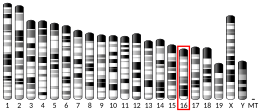Transmembrane protein 44
| TMEM44 | |||||||||||||||||||||||||||||||||||||||||||||||||||
|---|---|---|---|---|---|---|---|---|---|---|---|---|---|---|---|---|---|---|---|---|---|---|---|---|---|---|---|---|---|---|---|---|---|---|---|---|---|---|---|---|---|---|---|---|---|---|---|---|---|---|---|
| Identifiers | |||||||||||||||||||||||||||||||||||||||||||||||||||
| Aliases | TMEM44, transmembrane protein 44 | ||||||||||||||||||||||||||||||||||||||||||||||||||
| External IDs | MGI: 1924489; HomoloGene: 26702; GeneCards: TMEM44; OMA:TMEM44 - orthologs | ||||||||||||||||||||||||||||||||||||||||||||||||||
| |||||||||||||||||||||||||||||||||||||||||||||||||||
| |||||||||||||||||||||||||||||||||||||||||||||||||||
| |||||||||||||||||||||||||||||||||||||||||||||||||||
| |||||||||||||||||||||||||||||||||||||||||||||||||||
| |||||||||||||||||||||||||||||||||||||||||||||||||||
| Wikidata | |||||||||||||||||||||||||||||||||||||||||||||||||||
| |||||||||||||||||||||||||||||||||||||||||||||||||||
Transmembrane protein 44 is a protein that in humans is encoded by the TMEM44 gene. [5]
Gene
[edit]mRNA sequence of the TMEM44 gene is 1483 base pairs long, with 13 exons.[6]
Locus
[edit]TMEM44 gene is located at the end of the long arm of chromosome 3 in humans (Homo sapiens).[7]

Protein
[edit]TMEM44 is 428 amino acids in length. The molecular weight of the protein is 47.1kDa, and its formula is C2086H3315N585O611S22, with a total of 6619 atoms.[8] TMEM44 is predicted to be integrated in the plasma membrane of the endoplasmic reticulum.
Expression
[edit]There is an overall low level expression of TMEM44 protein throughout the developmental stages of an organism.[9]
Transcripts
[edit]There are 12 isoforms of TMEM44 including isoform a, isoform b, isoform c, isoform d, isoform X1, isoform X2, isoform X3, isoform X4, isoform X5, isoform X6, isoform X7, isoform X8.[7]
Transmembrane Region Allocation
[edit]There are seven predicted transmembrane domains in TMEM44 protein.

Interacting Proteins
[edit]GSK3B (Glycogen synthase kinase 3 beta) is a protein predicted to physically interact with TMEM44.[10][11][12]
Post-Translational Modification
[edit]TMEM44 is predicted to undergo threonine, tyrosine and serine phosphorylations.[13]

Orthologs
[edit]TMEM44 orthologs includes groups such as amphibians, birds, fish, mammals.[14]
Paralogs
[edit]Predicted paralogous proteins of TMEM44 are C9IZ85, F8WCY1, F8WE47, H7C3X7, J3KQW3, Q6PL43, and Q96I73.[15]
References
[edit]- ^ a b c GRCh38: Ensembl release 89: ENSG00000145014 – Ensembl, May 2017
- ^ a b c GRCm38: Ensembl release 89: ENSMUSG00000022537 – Ensembl, May 2017
- ^ "Human PubMed Reference:". National Center for Biotechnology Information, U.S. National Library of Medicine.
- ^ "Mouse PubMed Reference:". National Center for Biotechnology Information, U.S. National Library of Medicine.
- ^ "Entrez Gene: Transmembrane protein 44". Retrieved 2018-05-01.
- ^ "Homo sapiens transmembrane protein 44, mRNA (cDNA clone IMAGE:4747146) - Nucleotide - NCBI". www.ncbi.nlm.nih.gov. 16 March 2005. Retrieved 2018-02-18.
- ^ a b "TMEM44 transmembrane protein 44 [Homo sapiens (human)] - Gene - NCBI". www.ncbi.nlm.nih.gov. Retrieved 2018-02-15.
- ^ "ExPASy - ProtParam tool". web.expasy.org. Retrieved 2018-04-22.
- ^ Group, Schuler. "EST Profile - Hs.478729". www.ncbi.nlm.nih.gov. Retrieved 2018-04-23.
{{cite web}}:|last=has generic name (help) - ^ IntAct. "IntAct Portal". www.ebi.ac.uk. Retrieved 2018-04-22.
- ^ Lab, Mike Tyers. "BioGRID | Database of Protein, Chemical, and Genetic Interactions". thebiogrid.org. Retrieved 2018-04-22.
- ^ "The Molecular INTeraction Database – An ELIXIR Core Resource". mint.bio.uniroma2.it. Retrieved 2018-04-22.
- ^ "NetPhos 3.1 Server". www.cbs.dtu.dk. Retrieved 2018-04-22.
- ^ "BLAST: Basic Local Alignment Search Tool". blast.ncbi.nlm.nih.gov. Retrieved 2018-02-18.
- ^ Database, GeneCards Human Gene. "TMEM44 Gene - GeneCards | TMM44 Protein | TMM44 Antibody". www.genecards.org. Retrieved 2018-04-23.
Further reading
[edit]




